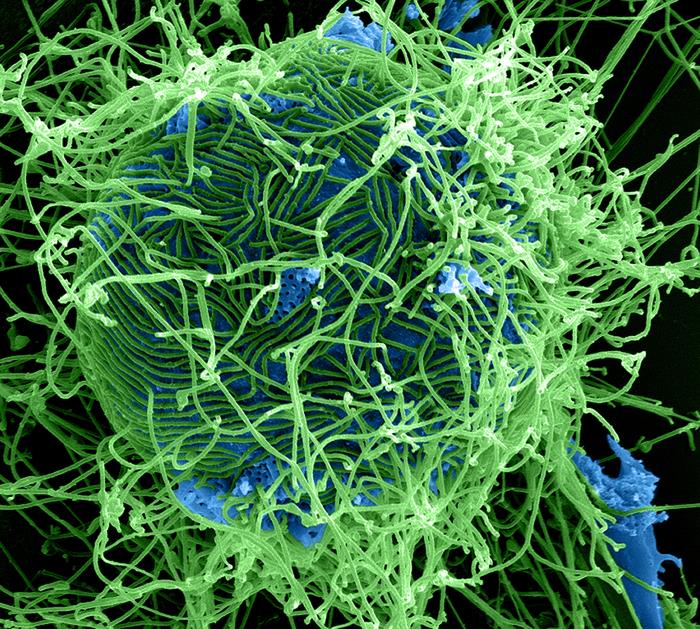In a follow-up on the flare-ups of Ebola Virus Disease (EVD) in West Africa HERE and HERE, The World Health Organization (WHO) and Ministry of Health teams in Liberia and Guinea are investigating the origins of transmission in Liberia’s latest flare-up after learning that a woman who died from Ebola in Liberia last week had recently traveled from Guinea with her three young children.

Liberian health authorities report that the woman arrived with her children on 21 March 2016, shortly after her husband died in Guinea from unknown causes. She stayed with relatives in Monrovia, where she developed symptoms over the following week. She initially sought care in local clinics and died en route to a Monrovia hospital on 31 March 2016.
One of her boys has since tested positive for Ebola virus disease, bringing the number of cases in this flare-up to 2. He is being treated at an Ebola care facility in Monrovia. Her two other children, plus her sister, are being closely observed by medical staff.
Liberian health authorities quickly reactivated the country’s emergency response mechanisms and with support from key partners, immediately set to work tracing, isolating and monitoring contacts of the confirmed cases, intensifying infection prevention and disease control measures and stepping up community outreach. Teams plan to initiate vaccination of contacts with the Ebola vaccine to prevent potential spread of the virus.
Eighty-four contacts of the cases have been identified in Liberia as of today and have been placed under medical observation. Affected households have been offered food, water, hygiene supplies and counselling.
These latest cases in Liberia mark the country’s third flare-up of Ebola virus disease since its original outbreak was declared over on 09 May 2015. The previous flare-up in Liberia began in November 2015 and ended 14 January 2016.
Last week, WHO said the Ebola epidemic in West Africa no longer represents a Public Health Emergency of International Concern, asserting that Guinea, Liberia and Sierra Leone now have the detection and response capacities to effectively manage small outbreaks when they occur.
While the risk of flare-ups is declining, WHO reiterated that more must be expected, largely due to virus persistence in some survivors. Nearly 1,000 WHO specialists remain in the region—ready to contribute to emergency response operations when needed, and in the meantime, working to recover and strengthen health systems in the three countries.
Worldwide, there have been 28,646 cases of Ebola virus disease and 11,323 deaths at 27 March.
Related:
- Uganda mystery outbreak: Ebola, Marburg and RVF ruled out
- Yellow fever update: 1400 suspected cases, nearly 200 deaths in Angola
- Nigeria Lassa fever outbreak: 138 deaths since November; WHO calls for early diagnostics


One thought on “Ebola flare-ups: Liberia and Guinea”